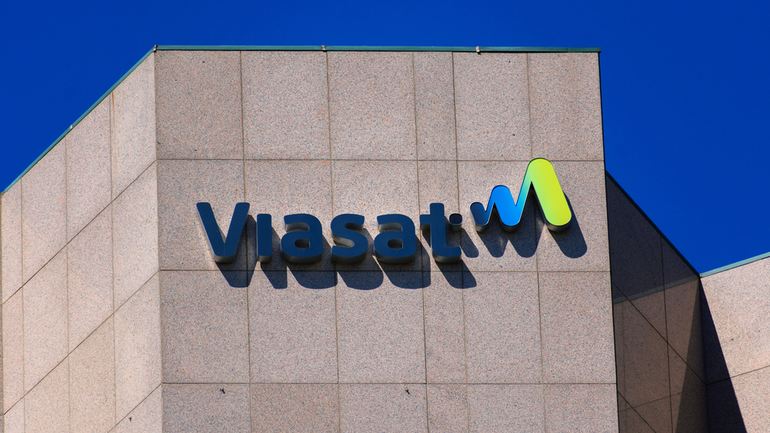The ViaSat-3 Americas satellite has completed its Final Integrated Satellite Test (FIST) and has now advanced to the Flight Final phase of integration, where it is undergoing final build-up for its flight configuration, according to the satellite communications provider Viasat. The satellite had previously passed mechanical environmental testing and thermal vacuum testing, which replicated vacuum and extreme heat and cold temperatures in orbit, where the satellite is projected to operate for the next 15 years. FIST is intended to test all of the satellite’s payload and bus systems to ensure they perform correctly after the pressures of mechanical environmental testing, which simulates the spacecraft’s launch. Following the mechanical and thermal strains of the previous test phases, FIST confirmed that the satellite continued to function as intended. The Ka-band satellites of the ViaSat-3 class are anticipated to offer the finest bandwidth economics in the sector with significant flexibility…
Inmarsat, a major supplier of international mobile satellite communications services, and Viasat, a worldwide communications company, have announced that the Australian Government’s Foreign Investment Review Board (FIRB) has stated that it has no concerns about the intended merger of the two companies. The proposed deal has already received numerous important regulatory approvals, most notably from the Committee on Foreign Investment in the United States and from the UK Government under the National Security and Investment Act. The most recent permission for the deal is the FIRB’s clearance of Viasat’s proposed acquisition of Inmarsat under the Foreign Acquisitions and Takeovers Act of 1975. Australia is a large market where the two businesses have substantial consumer and commercial ties. Inmarsat and Viasat announced that they will merge their two businesses to become a new global communications powerhouse in November 2021. The transaction is expected to be completed in the second…
Google has a long history of secretly working on complex, high-tech projects, and the company has disclosed yet another such initiative. Aalyria, a new telecom company, was introduced on Monday. Within Google, it was known by the code name “Minkowski.” Despite the lack of precise information, sources claim that the company has been developing software for satellite-based, high-speed communications networks. Aalyria stated in a media release that its goal is to manage extremely fast, remarkably secure, and highly complicated communication systems that span land, sea, air, near space and deep space. However, Google declined to disclose information about Aalyria, including how long it has been developing the technology and how many employees are joining the startup. The Loon group’s software will be converted by Aalyria experts into a cloud-based system for controlling intricate networks that link high-speed Internet to objects such as satellites, aircraft and ships. …
The EU Secure Connectivity Program has welcomed Rivada Space Networks, a wireless technology company focused on open access wholesale and the fusion of terrestrial and satellite communications. The EU space-based, secure communication system proposes to use the most recent quantum communication technology for secure encryption in order to accommodate growing and changing governmental and business demands. The program aims to enable access to advanced, dependable and high-speed connectivity for citizens and businesses across Europe, including coverage of communication dead zones. This initiative is aimed at ensuring cohesion among Member States, and providing the long-term availability of worldwide uninterrupted secure and cost-effective satellite communication services. In its submission to the EU Secure Connectivity Program’s preliminary market consultation, Rivada Space Networks outlined the main characteristics of its laser-linked LEO constellation architecture. The business also suggests that the member nations and project stakeholders should use its Open Access Wireless Marketplace platform…
In order to extend mobile service to isolated rural regions, the Belgian communications operator BICS has inked a deal with the satellite-direct-to-phone telecoms business Lynk. This agreement will make it possible for mobile network operators (MNOs) to provide services to subscribers in rural areas in North America, the Caribbean, Latin America, South-East Asia, and a number of rural African regions. BICS focuses on cloud, mobility and IoT, while offering digital communications on a worldwide scale. The company also collaborates with MNOs and mobile virtual network operators (MVNOs). This collaboration aims to solve the problem of remote locations that currently lack any form of mobile connectivity. BICS will use its network to connect the cell carriers with the Lynk satellite constellation. Lynk’s solution enables conventional roaming partner integration without requiring that the mobile operators’ networks undergo hardware or software upgrades, thereby expanding coverage to outlying regions, islands, and…
T-Mobile is collaborating with SpaceX to expand its network coverage. Last week, the two businesses announced that they will collaborate to provide extensive cellular access, including full coverage in most parts of the United States. The collaboration seeks to beam down connectivity using SpaceX’s fleet of low Earth orbit satellites for the benefit of T-Mobile customers. With this initiative, T-Mobile consumers should be able to connect to the SpaceX satellites through a new network, transmitted from Starlink’s satellites utilizing T-Mobile’s midband spectrum across the country. SpaceX currently provides home internet access globally through its Starlink program. Even though T-Mobile hasn’t yet provided details on the network’s deployment, the company claims that this collaboration should provide nearly complete coverage almost anywhere in the US. The two companies intend to provide this service in order to replace the use of satellite phones in off-the-grid locations such as national parks or…
UltiSat, a global provider of essential communications solutions, has announced a new distribution agreement with OneWeb Technologies to include its LEO-based satellite communications services in the UltiSat portfolio for the government and mobility industries. The deal is part of UltiSat’s continuous product and service expansion plan, which began in late 2021. To enable worldwide end-to-end connectivity, the distribution agreement will make use of OneWeb’s expanding fleet of LEO communications satellites and approved remote terminals. Equipment integration, field services, 24×7 customer support, logistics and lifecycle management will be provided by UltiSat. UltiSat and OneWeb Technologies will collaborate to make a wider selection of client application environments more accessible, all of which will be commercially available and operated as a service. UltiSat has also announced a strategic distribution and integration deal with Cobham Satcom, a prominent global provider of land and maritime satellite communications solutions to the government and enterprise…
As part of its search for new technological and research collaborations, Viasat Inc., a global leader in satellite communications, has joined the Harwell Science and Innovation Campus’s Space Cluster. Viasat is proving its willingness to play an active part in the UK’s space ecosystem by building a new office at the Harwell Campus, while also providing its expertise in space-based broadband communications to the Harwell community. Harwell is home to the UK’s largest concentration of space knowledge, with over 1,400 people working across over 100 private and public sector enterprises, including the UK Space Agency and the European Space Agency. The space sector, according to Harwell, provides £5.7 billion annually to the UK economy. The Harwell Space Cluster, according to Viasat, is generally recognized as a critical aspect of the UK’s space sector, bringing together innovative enterprises from throughout the UK and the European Union. Viasat hopes to…
GCI to expand capacity for rural areas GCI, an Alaskan service provider, has signed a $150 million contract with Intelsat to increase the telecommunications service capacity in rural areas. GCI has been providing geosynchronous (GEO) satellite communications for 35 years to supply the state with data, video and voice services. The latest transaction gives GCI continued access to C-band and Ku-band capacities, which are already a part of GCI’s satellite services portfolio, and also provides new access to state-wide Ka-band capacity. Furthermore, Intelsat will provide the multi-satellite solution through a new and improved managed station platform and C- Ku- and Ka-bands networks. Read more at: https://tinyurl.com/w52yht6u South Sudan launches Digitel Network South Sudan has announced the launch of Digitel Network, the country’s first telecommunications company, which was introduced to celebrate 10 years of independence of the country. South Sudan has so far had the services of only two international mobile…
OneWeb, a global communications company that provides broadband satellite Internet services around the world, has announced another successful launch of 36 Arianespace satellites from the Vostochny Cosmodrome. With this launch, the company gets closer to reaching their “Five to 50” goal and the lift off of commercial services by the end of this year. The launch took place on May 28th at 18:38 BST. The OneWeb satellites detached from their host rocket and were distributed in nine clusters over 3 hours and 52 minutes. Signals were received from all 36 satellites, indicating their operational status. This launch is the fourth in a series of five total launches needed to complete the “Five to 50” program. The program will allow OneWeb to offer connectivity in all parts of the UK, Alaska, Northern Europe, Greenland, Iceland, the Arctic Seas and Canada. The service is predicted to be available by the end…













